„Democratic” fund for energy efficiency
The Energy Efficiency Fund (FEE) was founded in summer,2012 to ensure efficient energy expenses by fundingsome localprojects of energy consumption reduction and use renewable energy. In the past three years, FEE approved funding worth nearly half of billion lei for thermal insulation, replacing windows and doors and installing public lighting in different settlements of the country. Most of this money was handed to settlements managed by democratic mayors. FEE is under the Ministry of Economy’s subordination that is managed by representatives of the same party. Fund’s politicization is not the only problem, say officials. A part of companies authorized to perform energy audit, without which you cannot get funding from the EEF are interconnected or affiliated to employees of the Fund or of the institutions subordinated to the Ministry of Economy. Revenues from audit obtained by these companies amount to several hundred thousand lei per month, say other auditors who complain of unfair competition. Economic unit who is currently managing businesses of the former Minister of Economy, Valeriu Lazar, has been the manager of this Fund for 3 years. The company was remunerated with about 145 000 lei per month.
One in three projects, accepted
In four years since set up, FEE has approved funding worth 417 million lei for projects. Most of the money was provided by the European Union, which announced that it is willing to allocate 40 million for energy efficiency projects implemented in Moldova. Finally, due to lack of absorption capacities of the Fund, only half of the amount was disbursed. The procedure for accessing grants from the FEE is a complicated one, say mayors who submitted 794 draft proposals, of which, only 262 were accepted by July 2016 (only one in three – n.r.), of which only 165 projects are submitted by local authorities. For example, to get funding for institution’s insulation, the municipalities must submit to the fund a project that contains 18 documents, of which 5 are specialized reports that can be issued by experts against payment.
In four years since set up, the Fund has allocated funding for projects proposed by public authorities in three large programs. Calls 1 and 3 refer to the thermal insulation of buildings, and Call 5 provides funding for public lighting. The Fund covers 70-80 percent of costs of works; the remaining money is contribution of the contracting authority.
“We have been trying for 2 years to get financing from the Fund. You need to bring one document or other. Preparation of the set of document is expensive. We paid almost a hundred thousand lei. I paid 60 thousand lei for auditing. Then, the rules have changed and new requirements appeared. We managed to get a project for thermal insulation of walls in the village school because I was persistent. Now, we want to try can get a grant for public lighting", says Valentin Gutan, mayor of Cricova town, municipality Chisinau.
Energy efficiency, on political criteria

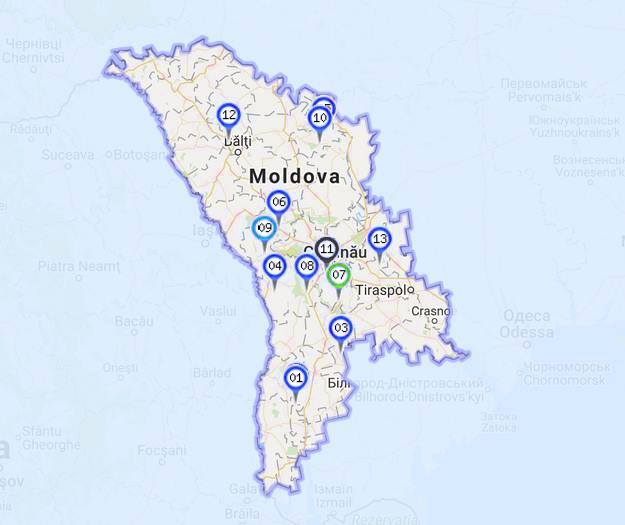
We analyzed 165 projects accepted for funding by FEE for local authorities in terms of political affiliation of mayor’s offices who have applied for funding. Thus, in 67 cases (40.6%), money for energy efficiency projects have reached settlements managed by democratic mayors and in six cases, the mayors who obtained projects from FEE joined the Democratic Party later.
The situation is works in the case of the 6th Call for public lightning modernization. Out of 13 projects approved by FEE, eight cases concern the municipalities managed by representatives of the Democratic Party. As for villages Chioselia Mare and Frumusica, district Cahul, mayor Svetlana Cealicu, candidate of the Liberal Democratic Party in Moldova, backed earlier this year the liberal democratic MPs who formed the new parliamentary majority and voted with Government led by Pavel Filip.
In all, villages led by democratic mayors benefited from over 89 million lei in projects financed by FEE, which represents 42 percent of the total amount of 211 million lei, allocated by the Fund for energy efficiency projects implemented in villages.
Privileged settlements
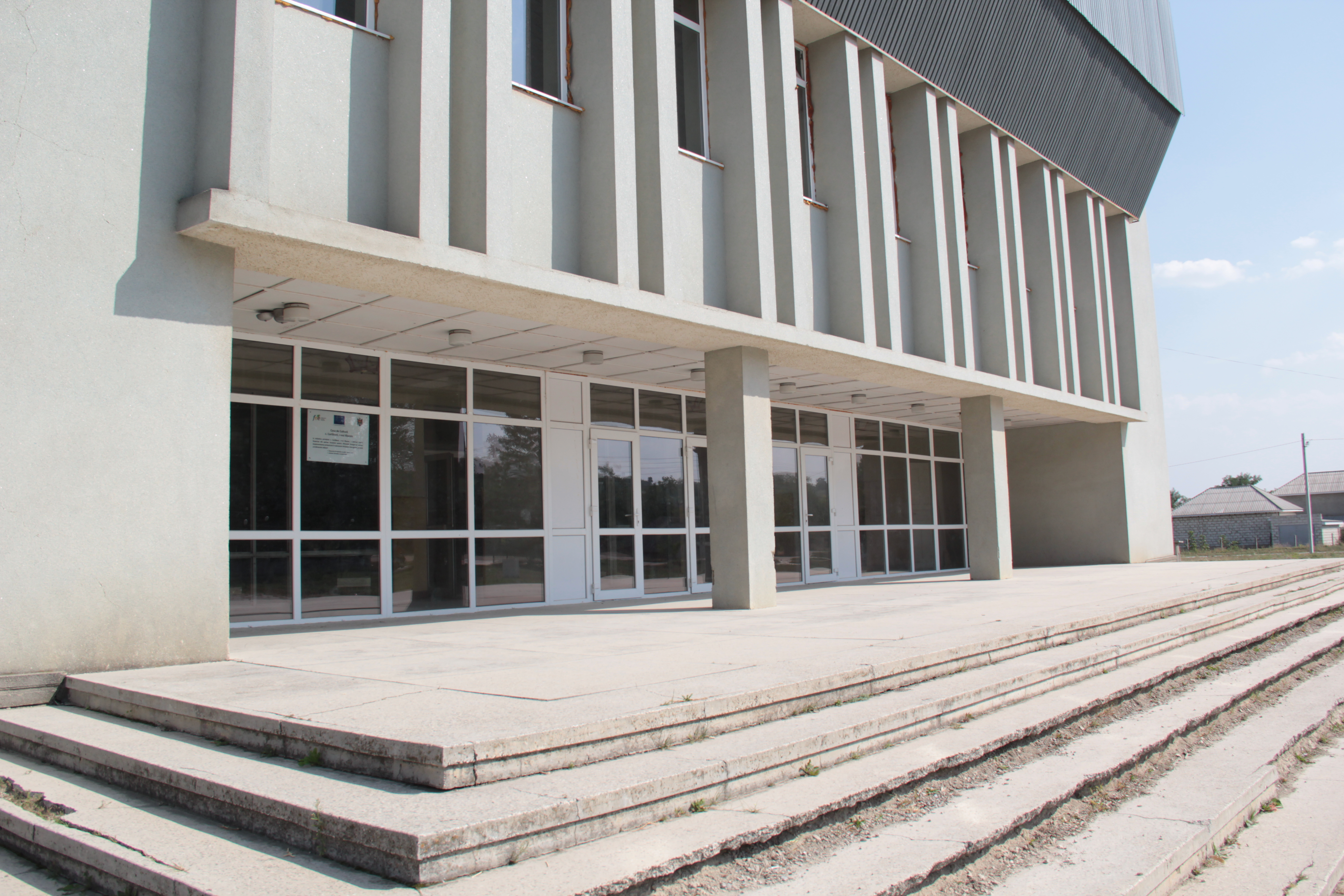
"There is no connection between the FEE's funding and political affiliation of mayors. I was in opposition and I worked with the Fund. We obtained financing projects before. I left the Liberal Democratic Party in Moldova and I joined the Democratic Party five months ago", said Anatolie Baciu, mayor of the village Corlateni, Rascani district, village that last year gained three projects funded by the FEE, very rare in practice of FEE. Two of the projects relateto thermal insulation of the Culture Houseand of the Lyceum “V. Dumbraveanu" in the village (funding contracts of 1.26 million lei each were approved on June 30, 2015 – n.r.), and the last agreement for street lighting system modernization, worth 631 000 lei was signed on 17 June current year, three months ago. Recently, the Mayor’s office organized a tender to start thermal insulation of lyceumin the village. The contract was signed with Beaux Com SRL in June, current year.
It is worth mentioning that 259 Mayor’s offices that have submitted one or more projects to FEE, did not receive any grant.
Large projects with little impact
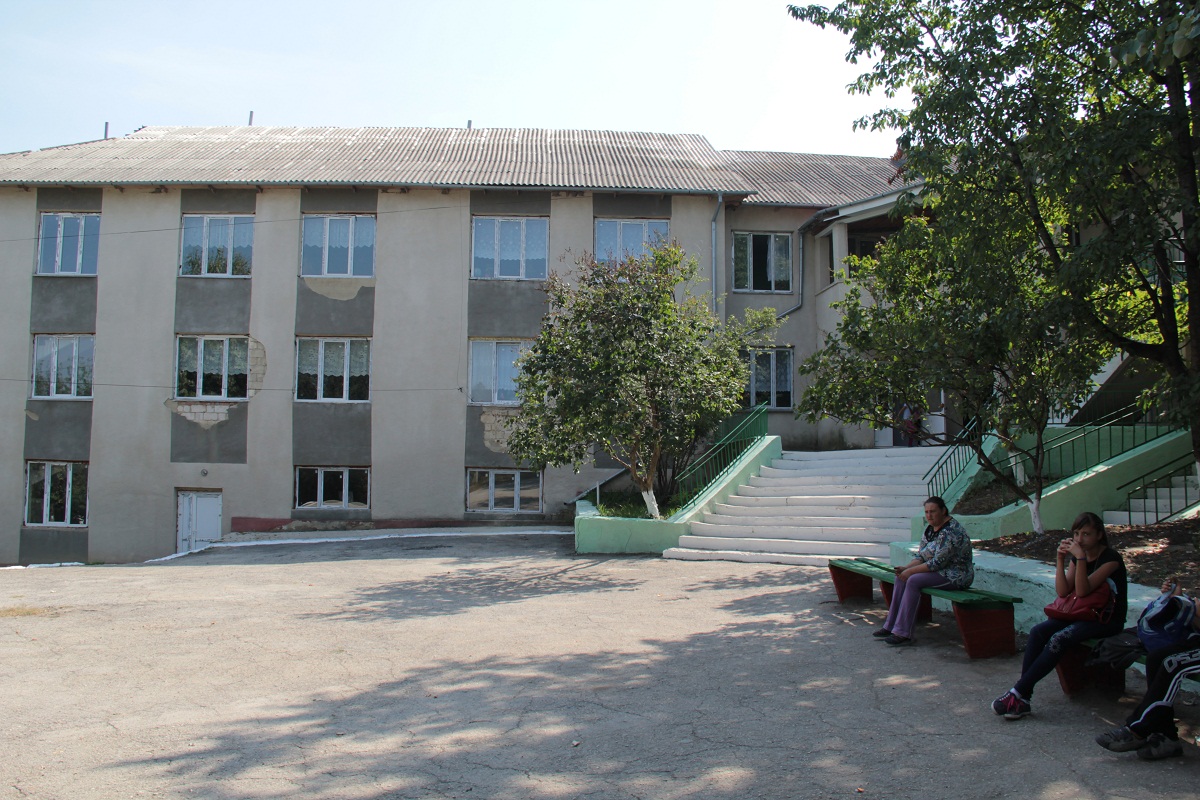
Though the competition to get funding from FEE is tough, there are cases in which the Fund decided to provide large sums for small institutions with a small number of beneficiaries. For example, a sum of 2 million lei was earmarked for thermal insulation of school-kindergarten in the village Bogzesti, Telenesti. According to data of the Ministry of Education, 72 pupils attend this institution. Local media writes that to prevent liquidation of the school-kindergarten, 30 of these children come by a minibus from the neighboring village Bahu, Calarasi district. The mayor of this village Vasile Ozun is the exponent of the Democratic Party.
Contacted by phone, a local representative has informed us that this is the second project from FEE awarded to village Bogzesti for thermal insulation of the local gymnasium. “Three years ago, we won a project to replace the windows and doors of the school, now we want to insulate walls. We have not started working yet", said the mayor. Ozun points out that the local gymnasium will work for many years and that's because in addition to the 72 students in the village, about 30 children come from Bahu. The official rejects that projects from FEE are awarded based on political criteria. "When I got the first project, I was a representative of communists. It is not about political criteria. If you work, you get the documents, you'll get funding", he said.
Also, the Fund rejected the project filed by mayor’s office in village Cuhurestii de Jos, Floresti, for thermal insulation of the gymnasium in the village, where 190 children study. Mayor of the village, Liberal-Democrat Victor Cretu applied twice with this project at FEE, but was refused.
Director of FEE Octavian Crestin says that there are documents confirming that the institution in Bogzesti will activate in the next 5 years. However, the payback period for energy efficiencyinvestment is seven years. "There are few similar cases. We have many projects in hospitals where the number of beneficiaries is much higher", is counter-argument of the official.
„It is not convenient to apply to this Fund”
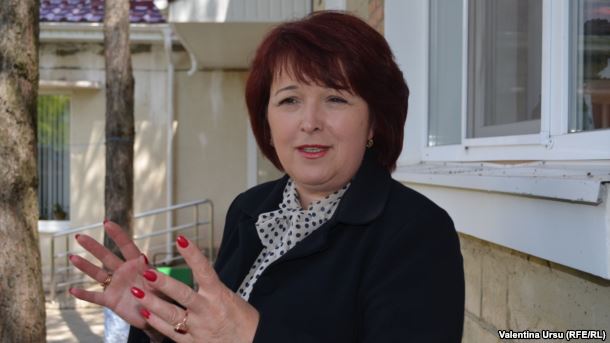
"We applied 3 times to the Fund for funding for thermal insulation of the music school in the settlement, the only one in the south of the country, and it was rejected”, says Tatiana Badan, mayor of village Selemet, district Cimislia. Also, she is president of Congress of Local Authorities from Moldova (CALM). The Mayor’s office spent more than 70 thousands lei for the application documents. "With this money we could start replacing the windows of the school. It's not convenient to apply to this fund because there is no transparency in the administration. It is fair to allocate money for projects where there is durability, but not for institutions that will be closed shortly. Many mayors have complained to me that FEE is politicized and the application process is very complicated ", said Badan.
Audit reports worth millions of leicovered in dust on shelves
Most objections of mayors concern the energy audit which is mandatory for all energy efficiency projects submitted to the Fund.
"I spent a lot of money for energy auditing. Authorized companies ask for 20 thousand lei up for the audit of a building. At first when the Fund was created, we were encouraged to submit many projects for funding. We hoped that we will get grants. There were hundreds of audits and eventually most projects were rejected. I spent money and documents are covered in dust on the shelves. We gave up on FEE. Now we are working with Japanese funds which are easier to access and more transparent", said Gheorghe Raileanu, mayor of Cimislia.
A simple calculation shows that at least 16 million lei (average price of an audit is about 30 thousand lei – n.r.) was spent for the audit reports compiled for the 532 financing projects rejected by the Fund in the last three years.
Audit with interests?
Energy Efficiency Agency (EEA) has authorized 42 companies to conduct energy audits for projects submitted to the FEE. Many of these companies have the same founders, same address or have close ties with the Fund or the Ministry of Economy. A quarter of authorized audit companies were created on the eve of the opening of the Fund or shortly thereafter.
According to the list of authorized auditors, published on the webpage of FEE, a project expert of the Fund, Igor Lucinschi, works at an audit company, Universal Instal. It is worth mentioning that the main task of the project is to check the set of documents of the funding projects submitted to the Fund.
Lucinschi said that he was not working for a year and half at Universal Instal. "The information on the website is outdated. I work just for the Fund", replied Lucinschi, and refused to tell if he left the company before being employed at FEE. "I speak on roaming. If you want to know if I was in conflict of interests, you have to investigate. I cannot say more information”, he said angrily.
Neither Andrei Gutu, current energy auditor at Universal Instal, remembers when exactly Lucinschi was fired from the company, but assures us that this happened before his former colleague was employed at the Fund. Asked if the company enjoys successful energy auditing at present, Gutu told us that the number of orders decreased compared to 2013-2014, but all their clients get funding from the EEF. "We try to offer to our customers a wide range of services. In addition to energy audits, we help them to prepare other documents necessary to apply for the project ", he said.
Head of the National Institute of Standardization under the subordination of the Ministry of Economy, Iurii Socol is co-founder of energy audit company, Energy Efficiency Center SRL, created in early 2015 and has obtained authorization from FEE in less than two months from the foundation. Another audit firm, the Center for Engineering, Construction Economics and Management SRL, founded by Mihail Socol is registered on the same address of the office of the company of Iurii Socol. Iurii Socol has confirmed that he was founder of the audit company but he did not say if he was a relative or not of Mihail Socol. "I do not think this is information of public interest. If you want to know if we are relatives, please contact the competent institutions. I cannot speak more, I have people in office ", saidthe official.
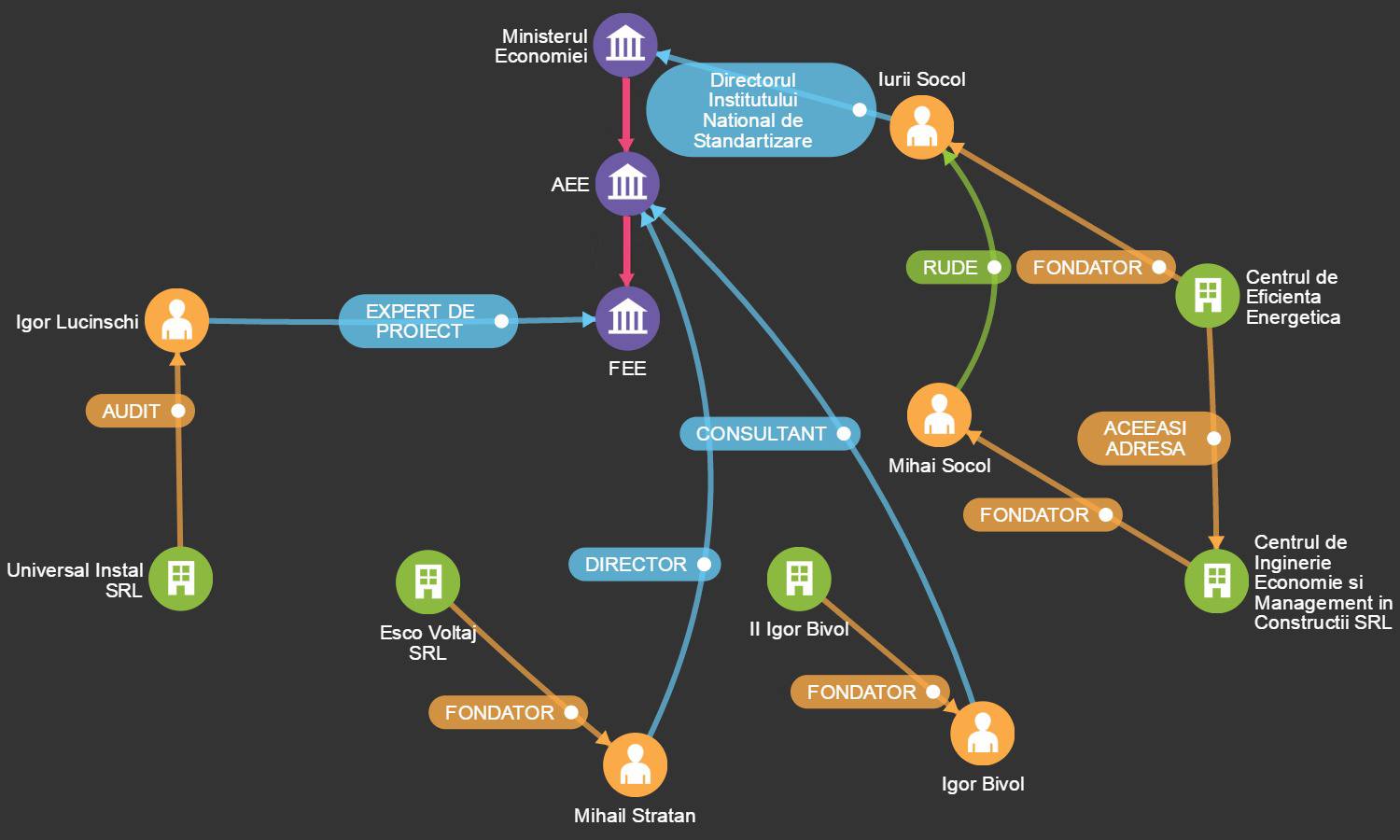
“Close” people
The list of authorized auditors includes the company founded by the director of Energy Efficiency Agency Mihail Stratan. Esco-Voltage SRL is among the first companies to have received authorization from FEE for energy audit.
Igor Bivol has been consultant in the same agency. On November 29 2013, he founded and individual enterprise that carries his name and 2 weeks later, record-time, he got authorization for energy audit. The company operates in town Hancesti. „I have had projects which were accepted. The audit authorization expired this year but I do not know if I extend it. The majority of audit agreements are awarded to big companies in Chisinau. They usually have a higher amount of works and that is why theypropose lowerprices. Local authorities prefer to organize tenders for audits of several institutions at once. For example, they organizetenders for 20 items and usually companies in Chisinau get them", declared Igor Bivol. According to him, the energy audit is a profitable business that does not involve large investments, it takes only two to three specialists who know their job and bring 200-300 lei per month to the company.
Dominant auditors on the market
According to a report of the Court of Accounts on FEE performance audit conducted in 2014, 50.6% of the energy audit reports for Call 1 were developed by three companies: Novaenerg SRL, Dumit-Grup SRL and DiolumSRL. Audits contained the same mistakes. "Accordingly, data from the energy audit reports could not be used byFEE to estimate the extent to which the project objectives meet the priorities of energy efficiency", reads the document.
Sergiu Ungureanu is founder of Novaenerg SRL and energy expert within EBRD. Also, he is the founder of the energy audit company Novaservice Mol. Also, the first company has the same legal address (str. Studenților 2/4) like Eco-energo-expert, founded by Anatolii Lormaca, manager atNovaenerg. Eco-energo-expert and Novaservice Mol were founded in 2013 when the Fund developed and these companies were awarded authorizations to perform audit just 4 months later.
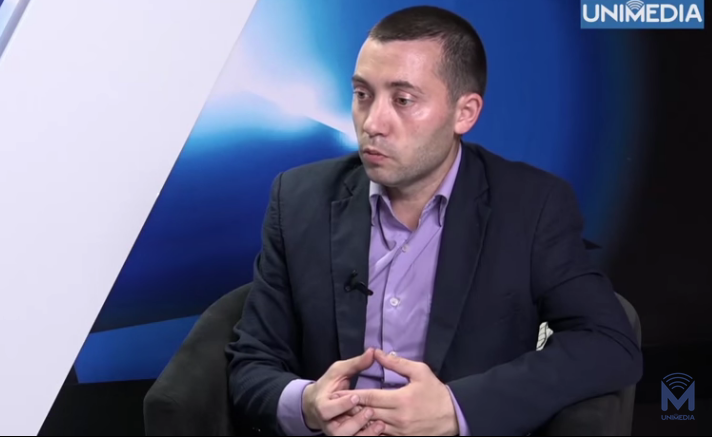
Contacted by Ziarul NATIONAL, Ungureanu confirmed that in 2013-2014 he had a big workload: „ we worked during the night to do everything”. As for the poor quality of the audit reports issued by the company, Ungureanu admits that the documents were not of high quality because the application period for Calls is very short. „Most of clients came to us at the last minute to do their audit. We had to make a report of 60 pages in less than a day. Also, the technical means provided by FEE for audit are insufficient, only one set for all 42 companies", explains auditor.
Ungureanu argues that there are many gaps in the activity of FEE, starting from the big amount of documents necessary for application, high cost to ready the project that should be submitted and the lack of certainty that these costs will be recovered. "The Fund should cover the costs for project documents regardless of the fact if the beneficiary gets or not funding", said the expert.
Company Diolum SRL was founded in 2010 by Alexandr Matrohin. Also, he is chairman of the Association of Energy Auditors in Moldova.
„Ministries and the Agency recommend us”
Dumit-Grup, opened in 2004, was founded and is managed by Dumitru Chetrus. Eleonora Plamadeala, Dumitru’s mother answered the phone number of the company. She said that she was the manager of the company. „ We work day and night. When we have to file documents at the Court of Appeal, we work also on weekend. We are recommended by people. A lady from Harbovat, Anenii Noi came recently to us and she complained that the energy audit performed by other 2 companies deceived her. There are many similar cases. The mayor’s offices paid by one hundred thousand lei each for poor energy audits performed by other companies which later did not answer the phone. I remember Tehnovat-Com. It performed energy audit in Cantemir, in Gagauzia, 32 audits for which paid 45-50 thousands lei for each and none of them was accepted by the Fund. All companies that perform energy audit in our company get funding. We are not seeking clients. Ministry of Economy, Ministry of Finances and Ministry of Constructions recommend us, including Mr. Stratan (director of FEE – n.r.). People go and ask for recommendation and they recommend coming to us, we perform quality auditing”, says Eleonora Plamadeala, and added that Dumit-Grup performs both energy audit and helps clients to ready the set of documents, we provide consultancy services.
„ We guide them until they get funding, but all our clients get it. 80% are our projects at Call 1. We must sue the Court of Accounts for the nonsense written in their report”, said the employee of the company.
It is worth mentioning that we requested FEE to tell us which are the companies that have performed energy audit for each of the winning projects from grants, but the institution refused to give us information. Energy manager in district Cantemir Valeriu Gandrabur confirms that Tehnovat-Com performed poor audit in the district. "I had big problems with them. I was ashamed when I read what their auditors wrote. Then I could not find them. They did not answer the phone, they changed their office", the official complains.
Founder and manager of Tehnovat Com Sergiu Lazarev, says that the company from Cantemir did not manage to get funding not because of the poor audit, but because of other documents which they had to file. „In 60% of cases, our clients got funding. However, we do not activate in this field for 2 years. It has been a high number of orders in 2013-2014”, said Lazarev. It is worth mentioning that the company does not have license for activities of consultancy in constructions and energy.
1,4 million lei for poor auditing
Several energy auditors we spoke with confirmed that some audit companies are awarded more projects just because they offer low prices, but they perform low-quality audits. However, none of the companies authorized to perform audit has been sanctioned by the FEE.
"We have had several cases last year in Nisporeni. Authorities that have contracted these companies came to us and asked us to do them repeatedly audit. I know that they sued the companies", says Mihai Tarsu, director of the Institute of Power Engineering of Academy of Sciences of Moldova.
"Although the energy audit report has a significant contribution in determining the eligibility of the project under the Call No. 1, according to the reports of the Administrative Board of FEE, the afore-mentioned reports were of low quality and affected the outcome. According to data of FEE, the cost of the energy audit performed, but not accepted for payment by the Fund, is 1.4 mln., expenses qualified as inefficient and supported by mayor’s offices or other beneficiaries. Fund accepted to cover audit expenditures in only 15 cases out of 83 grant contracts signed under the Call No.1 ", writes the report of the Court of Auditors.
Increasing contracts in Nisporeni
Auditors of the Court of Accounts detected several irregularities in the contracting process of companies that perform energy efficiency projects. Either the conditions of tendering or specifications have not been coordinated with the FEE, in many cases contracted companies asked to sign additional agreements of rise in price. According to grant contracts, if the provisions of the specification are not respectedor arenot coordinated with the FEE, the Fund may refuse disbursing the money.
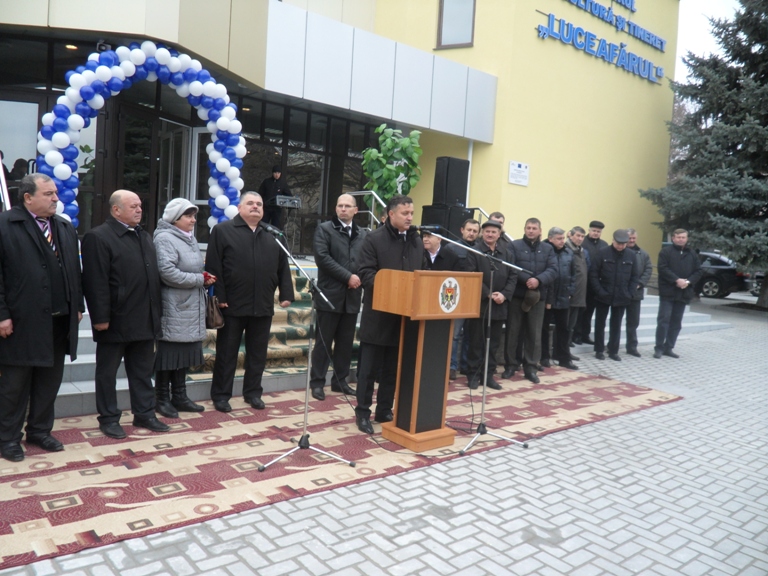
On February 20, 2012, District Council Nisporeni signed an agreement of reconstruction works of the cinema „Luceafarul” in the town with the company Nisprofcon. The works were supposed to cost 14,657 million lei. In the next 2 years, the company requested the rise by 3 times of cost of works, so the price increased by over 4 million lei, or by 27 %.
The Court of Auditors found that in this case the winning company did not meet the conditions set in the tender and presented a shorter experience of activity than the amount that was to be performed.
The same company was awarded in May 2014 the tender for execution of thermal insulation of kindergarten "Povestea" in town Nisporeni, another project financed by the FEE. The contract worth 2.294 million lei was then increased by almost 500 thousand lei for additional works which were not setin the project.
According to data from the State Registration Chamber, Nisprofcon Company is managed by Pavel Gutanu. The contractor claims that there is no infringement that the company requested rises to the contract because the decisions to carry out additional work were taken by a special commission.
Leaders at winning agreements
Most contracts of works execution within FEE projects were awarded to companies Toplider and Nobil Invest SRL, founded by Iuliania Zaharia. The two companies have executed energy efficiency works in seven institutions, obtaining an income of about 16.5 million lei. Zaharia is representative of the environmental NGO "First- Aid Center" that promotes the development of energy efficiency projects. Moreover, the legal address of company Nobil Invest is in the same office with that of the NGO. Iuliania Zaharia was not found to comment on this case.
Five contracts, financed by FEE were signed by the company Barzine-Cons founded in 2008 by Cristina Condurachi and managed by Elena Ciornei. Chief-accountant of the company Mariana Lungu is member of the faction of the Liberal Party in the Municipal Council Chisinau. According to Logos-press, in 2015, Barzine-Cons registered the most and the most expensive procurement agreements with state institutions. The total amount of works assumed last year reached 52 million lei. We called the only phone number ofthe company; the person said that the number was wrong.
Giesena SRL, founded and managed by Simion Gutan signed 3 agreements of energy efficiency works execution. The local authorities have cancelled 3 tenders for the thermal insulation of the Public Health Center in town Orhei in order to award the agreement estimated at 1,3 million lei to company Giesena. The economic units said that he got these contracts because they met all conditions set in the specifications and performed works well. "I do not know what was in Orhei, but I only attended the last tender, and I was selected as winner. It seems to me that they have some problems with financing. We had some delays in financing, but finally they honored their obligations", said Simion Gutan.
Energy efficiency from a democratic MP
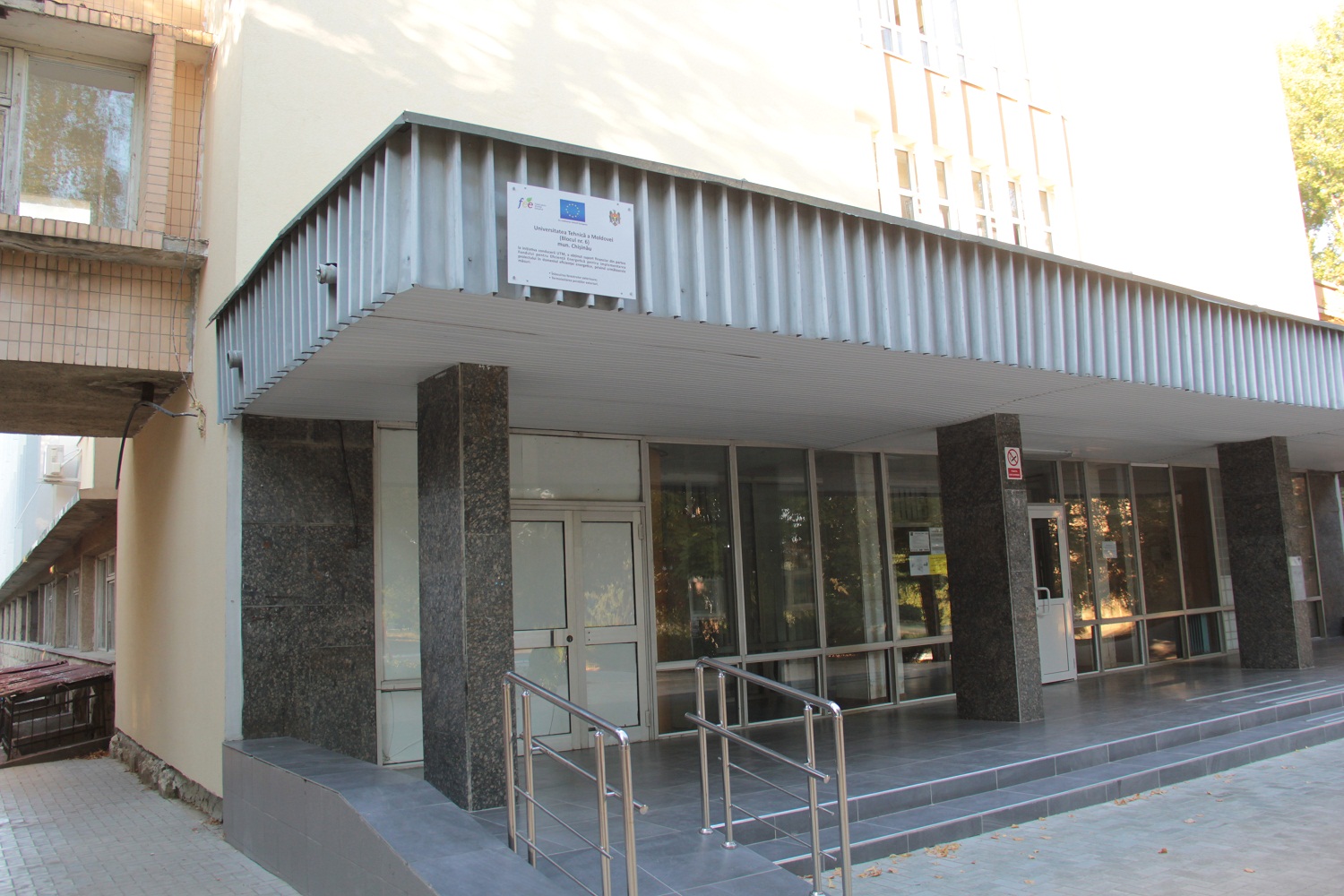
According to the same report of the Court of Auditors, several violations were admitted to awarding the agreement of insulation works of the blockNo.6 of the Technical University of Moldova (UTM), where the technical project was initiated five months later from awarding the contract and the design works were carried out alongside with the rehabilitation. The company that won the tender in March 2014, SRL Soldi, is owned by Mihail Solcan, democratic MP in that period. The same company was contracted last year for thermal insulation works ofgymnasium in village Nemteni, district Hincesti. Both projects were financed by the FEE. The first cost three million lei, while the second - 1.866 million lei.
"There were some problems related to documents, but most important is that the works are quality and efficient. We had problems with shading device thatwere notincluded in the project and we neededconsent of UTM and FEE. The works will be completed by October this year ", declared Soltan.
"The deficiencies and shortcomings established at organizing and developing public procurement by contracting authorities undermine the development of objectives of energy efficiency. Also, unclear definition of the role of FEE in coordinating and conducting public procurement, lack of technical projects, non-issuingestimates of expenditures by authorized persons and omitting the recommendations of the technical expertise of buildings have a negative impact on implementing and achieving successful performance indicators for energy efficiency projects", say auditors of the Court of Accounts.
Manager of FEE gets a salary of 145 thousands lei per month
Manager of the institution getsthe highest salary in FEE. Under the legal norm, Fund management services are contracted from outside. Thus, in 2012, following a competition, Individual Enterprise Viorel Munteanu was appointed to this position, founded by a person with the same name. Viorel Munteanu is listed as manager of companies Business Intelligent Services and Bis Capital, that were founded by Tatiana and Valeriu Lazar, then Minister of Economy.
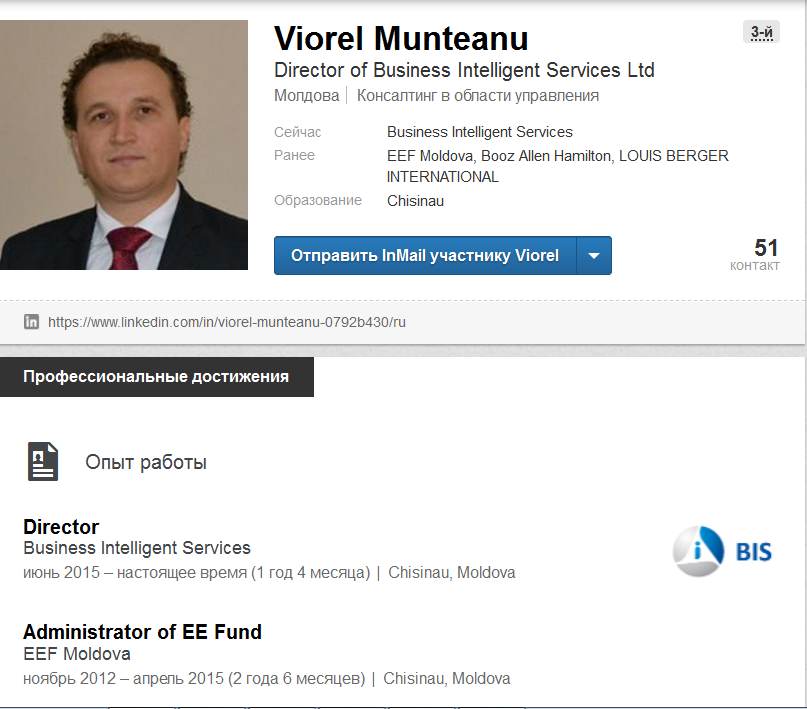
Under annual report made public by FEE, the institution pays a monthly salary estimated at 145 thousands lei to the company of Munteanu for conducting, among other, technicaland financial expertise of investment projects which request funding from FEE and customer creditworthiness expertise. The Court of Accounts points that the same functions are attributed to experts of the project employed under FEE, so thus their functions double.
Government decision on FEE provides that the manager is paid based on fulfillment of performance criteria set out in the management contract. However, the Administration Board (AB) of the Fund has decided to establish a fixed salary to the manager, without taking into account the performances. Just two of 7 members of the AB were against this judgment; they are representativesof the Ministry of Finance and energy expert from the Swedish Agency for International Development.
Contacted by us, Munteanu told us that the company he heads and which has nine employees has always been remunerated based on performances, underGovernment decision. "The company was originally contracted for a year and then I signed a new contract of services. I am not the manager of the Fund as of May 2015. As for companies of Valeriu Lazar, I was employed there after the contract with FEE expired. Mr. Lazar came with this proposal. We did not know each other personally before", said Munteanu.
The company Priminfo-Grup Audit is manager of the FEE as of May 2015. It was founded by the former deputy minister of Finance Viorel Dandara, current deputy mayor in Orhei, proposed by Ilan Shor. Currently, his wife Mariana Dandara is the only associate of the company.
„Most persistent companies win projects”
Acting executive director of FEE Octavian Crestin denies the funding distribution based on political criteria bythe Fund. „All procedures of activity of FEE were compiled in strict cooperation with external technical assistance. The componence of the Administration Boardof the Fund, that takes the final decision to approve or not a project, includes representatives of donors. In the Calls, we had to 2 ways of approach: under the first Call, it is about a competition and in the third and 5th Calls- the principle was „first come- first served”, says the head of the Fund. According to him, the employees of FEE have a fair attitude to all applicants of grant, but as the application process is complicated, only persistent companies win projects.
As for settlements that win several projects financed by the Fund, Octavian Crestin argues that the rules of the FEE allow an authority to submit several projects, but their value in a Call must not exceed the total amount of five million lei. "In the case of Corlateni, probably, the mayor assumes too much. Local gymnasium participated separately as a distinct entity", says director of FEE.
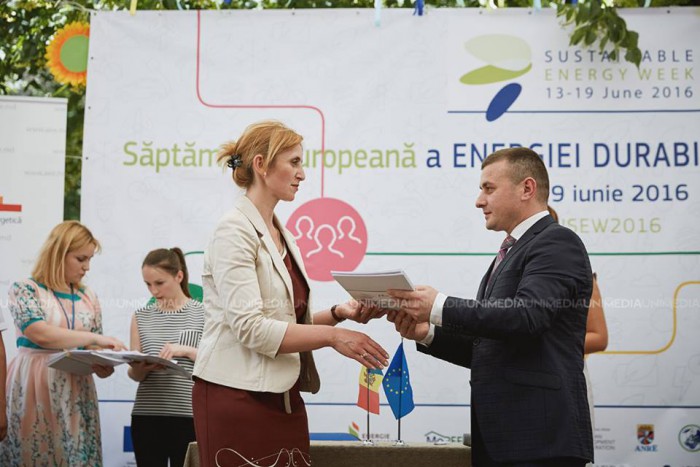
Octavian Crestin refused to refer to the activity of energy auditors, stating that is not the Fund’s competency. "The energy audit is developed based contractual relations between the person seeking funding and auditor. The Fund has no connection with energy auditors", he said. However, the source confirms that energy audits developed in the projects from Call 1 left much to be desired, and the Fund was forced to step in developing a new mechanism.
As for the violations found by the Court of Accounts to organize tenders for energy efficiency projects execution, Crestin said that representatives of the Fund may participate in them only as observers. Though the grant contracts expressly provide that the discordance or non-compliance of specifications can serve as grounds for refusal of funding by the FEE, Octavian Crestin claims thatthere are different cases. "There are situations when we have an energy efficiency project with basic steps for replacing windows and doors and wall insulation. Besides, the beneficiary wants to perform other works which are not accepted by the Fund. They come with an explanation, they introduce the works in the specifications and then we supervise the specifications with works set out in the project. The Fund does not imposerestrictions by coordination or non-coordination of the specifications ", concludes the director of the Fund.
Victor Parlicov, expert IDIS „Viitorul”: "The Fund has failed to become a real investment instrument in energy efficiency"
“Under the poor capacity of money absorption, we missed about half of the amount allocated by the EU as budgetary support for energy efficiency field. Out of about 40 million euros available, we accessed more than 20 million euros, of which less than half was not invested in energy efficiency projects. The other money was used to cover the budgetary deficit. Accordingly, European partners have stopped funding through this mechanism. Unfortunately, FEE has failed to become a sustainable financial instrument in the past 4 years. Currently, FEE has just the capacity to allocate grants, which does not confer sustainability, particularly in terms of freezing funding from external development partners. Also, in the situation of an austere budget, we cannot afford allocating sufficient resources for such investments. Thus, if we want that the targets assumed by Moldova in energy efficiency are not mere declarations of intent, the state should transform the Fund into a realfinancial instrument (refundable) and to access other funding sources. There is an enormous need of investments in energy efficiency and we still have a long way until FEE becomes an effective tool to make a difference".
This investigation is accomplished within „Shining a Light on Corruption in Moldova” Project, carried out by the Center for Investigative Journalism and Freedom House, with the financial support of the Norwegian Foreign Ministry.
Investigations in the same category:
The stories from www.anticoruptie.md may be used in the limit of up to 1,000 characters. Web pages must indicate the source and link directly to the article. Print media, Radio and TV stations must indicate the source. Publishing full version of stories is allowed based on a prior agreement with the Center for Investigative Journalism. Articles published on www.anticoruptie.md are protected by the Law on copyright and related rights of Republic of Moldova.
Comments
